
Fes Jdid: The Pulse of Imperial Morocco
Fes Jdid, translating to 'New Fes,' is a historical gem in the heart of Fes, Morocco. Despite its name, this neighbourhood dates back to the 13th century, founded by the Marinid dynasty. Dive into a world where centuries-old traditions blend seamlessly with the vibrant energy of today. Wander through the grand gates and discover a labyrinth of narrow streets, bustling souks, and awe-inspiring palaces. The Mellah, or Jewish quarter, is a unique feature of Fes Jdid. Stroll through its streets to find distinct architecture, synagogues, and the Jewish cemetery, providing a glimpse into the rich history of the Jewish community in Morocco. The Royal Palace, with its stunning brass doors and intricate tile work, is another must-see. Though the palace itself is not open to the public, its grandeur can be admired from the outside. Fes Jdid is not just about history; it's also about experiencing the daily life of its residents. Engage with local artisans crafting traditional Moroccan goods, sample exotic spices, and let the aroma of freshly baked bread guide you to hidden bakeries. This neighbourhood is a sensory feast, offering a deeper understanding of Moroccan culture and heritage.
Local tips in Fes Jdid
- Visit the Mellah for unique architecture and a rich Jewish history.
- Admire the Royal Palace's stunning exterior and intricate designs.
- Engage with local artisans and purchase traditional Moroccan crafts.
- Sample local spices and baked goods from hidden bakeries.
- Wear comfortable shoes as you will be walking through narrow and often uneven streets.
Fes Jdid: The Pulse of Imperial Morocco
Fes Jdid, translating to 'New Fes,' is a historical gem in the heart of Fes, Morocco. Despite its name, this neighbourhood dates back to the 13th century, founded by the Marinid dynasty. Dive into a world where centuries-old traditions blend seamlessly with the vibrant energy of today. Wander through the grand gates and discover a labyrinth of narrow streets, bustling souks, and awe-inspiring palaces. The Mellah, or Jewish quarter, is a unique feature of Fes Jdid. Stroll through its streets to find distinct architecture, synagogues, and the Jewish cemetery, providing a glimpse into the rich history of the Jewish community in Morocco. The Royal Palace, with its stunning brass doors and intricate tile work, is another must-see. Though the palace itself is not open to the public, its grandeur can be admired from the outside. Fes Jdid is not just about history; it's also about experiencing the daily life of its residents. Engage with local artisans crafting traditional Moroccan goods, sample exotic spices, and let the aroma of freshly baked bread guide you to hidden bakeries. This neighbourhood is a sensory feast, offering a deeper understanding of Moroccan culture and heritage.
Iconic landmarks you can’t miss
The Royal Palace in Fez
Explore the Royal Palace in Fez, an architectural marvel and a symbol of Morocco's regal history and culture, located in the vibrant heart of Fes.
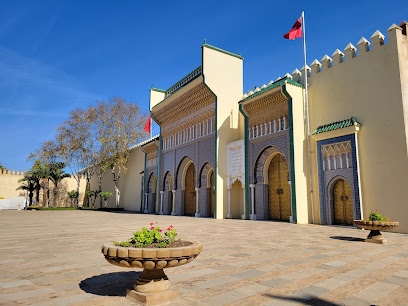
Bab Chems
Explore the historical marvel of Bab Chems in Fes, Morocco, a stunning gateway into the city's rich cultural and architectural heritage.
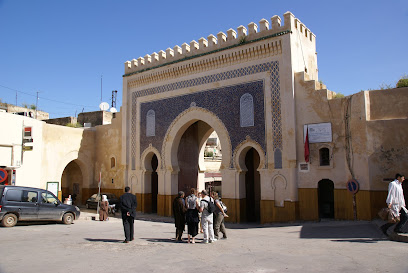
Bab Jdid Garden
Immerse yourself in tranquility at Bab Jdid Garden, a serene park in Fes, Morocco, perfect for relaxation amidst lush greenery and historic charm.
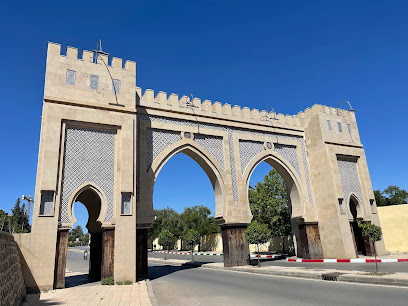
Bab El-Magana
Experience the captivating history and architectural beauty of Bab El-Magana, a historic gateway in the heart of Fes, Morocco.
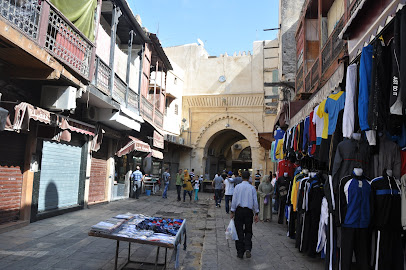
Bab Al Amer
Experience the rich history and vibrant culture of Fes at Bab Al Amer, a stunning historical site and tourist attraction in Morocco.
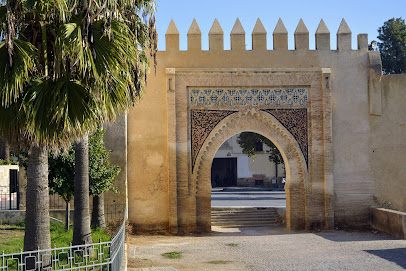
Bab Riafa
Discover the majestic beauty and historical significance of Bab Riafa, the iconic gateway to Fes' enchanting medina, rich in culture and tradition.
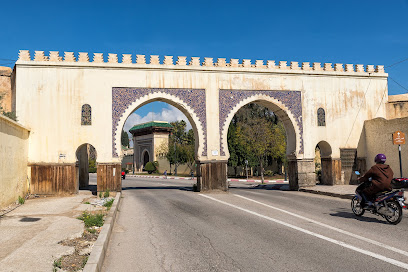
Bab Dekkakin
Discover the vibrant history and culture at Bab Dekkakin, the iconic gateway to the medina of Fes, Morocco, where tradition meets timeless charm.
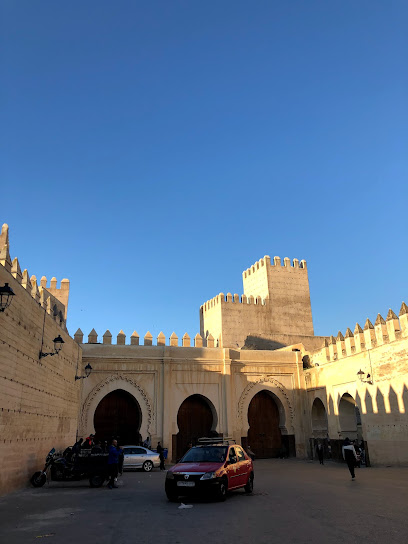
Bab Sigma
Explore Bab Sigma, a stunning historical site in Fes, Morocco, showcasing intricate architecture and vibrant local culture.
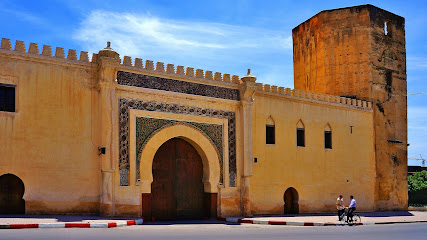
ساحة أبي الجنود
Experience the vibrant culture and history at Abu Jnoud Square, a must-visit tourist attraction in the heart of Fes, Morocco.
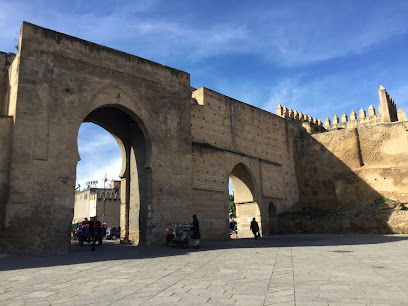
Puertas del Palacio Real de Fez
Discover the stunning Puertas del Palacio Real de Fez, a magnificent gateway showcasing the rich architectural heritage of Morocco.
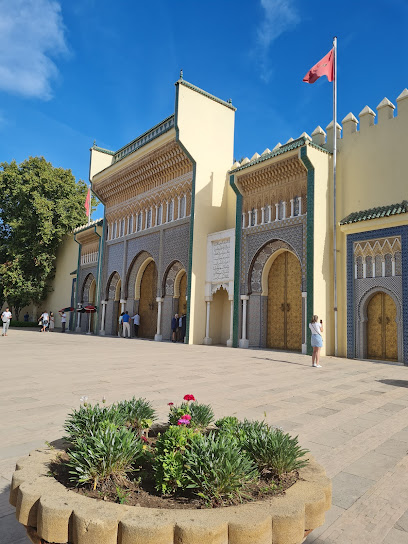
Unmissable attractions to see
The Royal Palace in Fez
Discover the Royal Palace in Fez, a stunning historical landmark showcasing Morocco's royal heritage and architectural beauty.
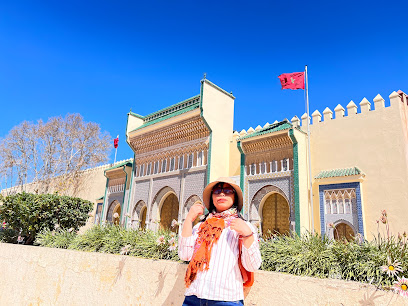
Nejjarine Museum of Wooden Arts & Crafts
Explore the rich tradition of Moroccan woodworking at the Nejjarine Museum, a captivating blend of culture and craftsmanship in the heart of Fes.
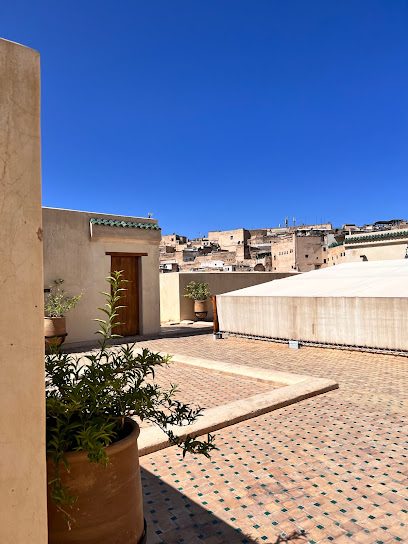
El Glaoui Palace
Explore the majestic El Glaoui Palace in Fes El Bali, a masterpiece of Moroccan architecture and a glimpse into the grandeur of the past.
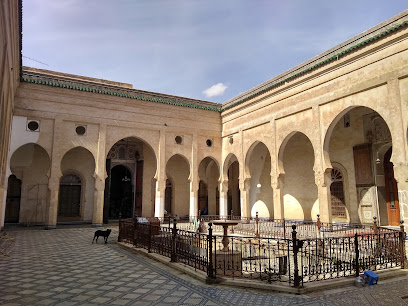
Essential places to dine
Le Tarbouche
Experience authentic Moroccan cuisine at Le Tarbouche in Fes - a culinary delight with rich flavors and warm hospitality.
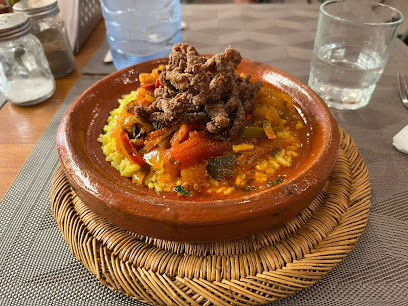
Chez Hakim
Experience authentic Moroccan flavors at Chez Hakim, a family-friendly restaurant in Fès serving delicious traditional dishes at great prices.
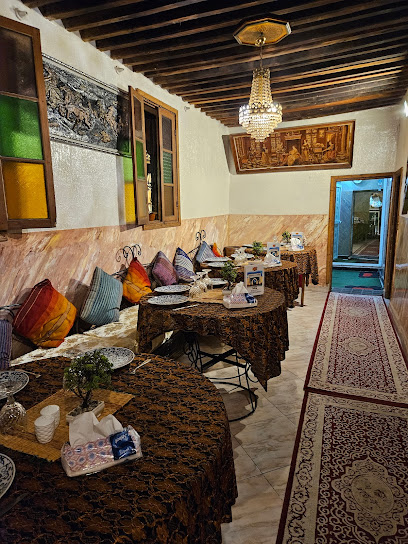
Chez Rachid
Experience the vibrant flavors of Morocco at Chez Rachid - a culinary gem in Fès serving traditional dishes in a welcoming atmosphere.
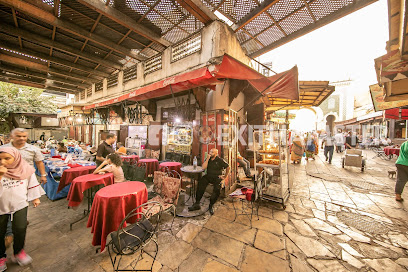
Nagham Cafe
Experience authentic Moroccan flavors and vibrant atmosphere at Nagham Cafe in Fes – perfect for food lovers and cultural explorers alike.
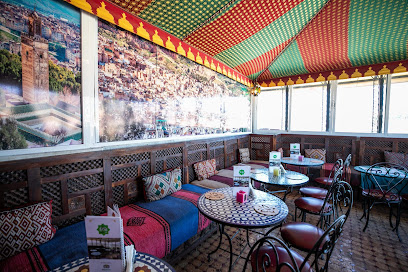
Restaurant boujloud
Experience authentic Moroccan cuisine at Restaurant Boujloud in Fes - where tradition meets taste in a delightful dining atmosphere.
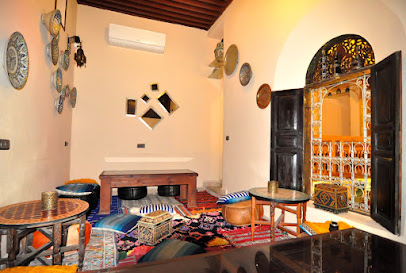
The Old Mill Restaurant & Café
Experience authentic Moroccan flavors at The Old Mill Restaurant & Café near Fès's iconic Blue Gate.
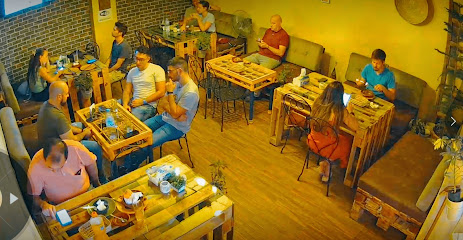
Le Peroke Cafe Restaurant
Experience authentic Moroccan cuisine blended with international flavors at Le Peroke Cafe Restaurant in the heart of Fes.
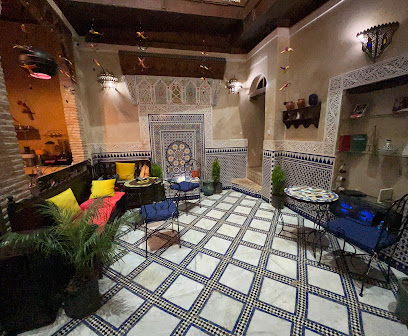
restaurant bab sahra fes
Experience authentic Moroccan cuisine at Restaurant Bab Sahra Fes - where tradition meets taste in every dish.
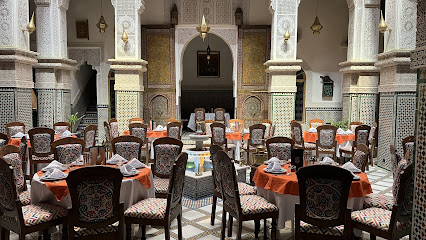
Le Coin des Artistes
Experience authentic Moroccan flavors blended with modern cuisine at Le Coin des Artistes in Fes – your culinary haven in the heart of Morocco.
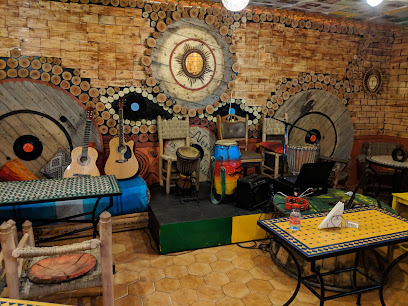
Restaurant Dar Fes Jdid
Discover authentic Moroccan cuisine at Restaurant Dar Fes Jdid with cooking classes for a hands-on culinary adventure in the heart of Fès.
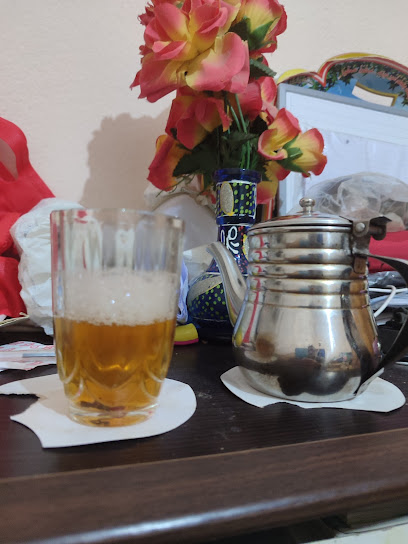
Markets, malls and hidden boutiques
Cooperative artisanal de fes
Discover the essence of Moroccan craftsmanship at Cooperative Artisanal de Fes, where tradition meets artistry in a vibrant shopping experience.
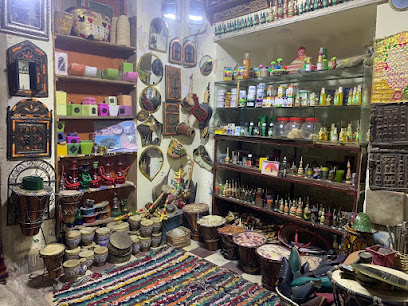
Asly concept store
Explore the enchanting Asly Concept Store in Fes for unique handcrafted gifts that capture the spirit of Moroccan culture and artistry.
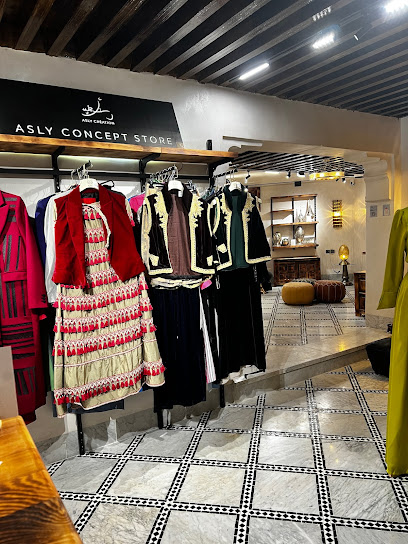
ANDALOUSSI ARTISANAT STORE (close to Nejjarine Fontaine )
Explore the rich cultural heritage of Morocco at Andaloussi Artisanat Store, offering unique handcrafted gifts near Nejjarine Fountain in Fes.
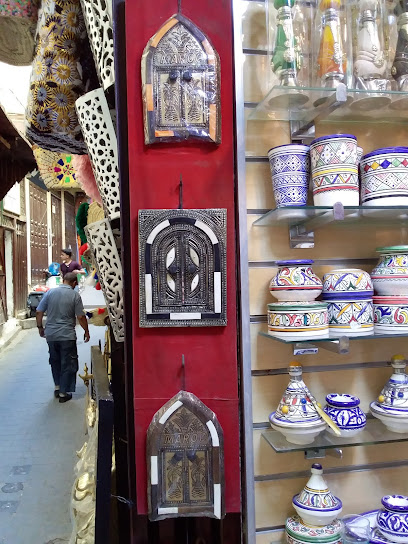
Royal Fakia
Discover the elegance of bridal fashion and the sweetness of artisanal chocolates at Royal Fakia in Fes.
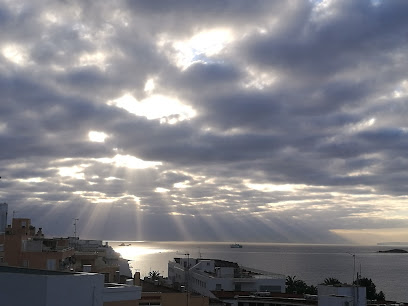
galerie des parfums
Discover the finest Moroccan fragrances at Galerie des Parfums, where scent meets artistry in the heart of Fes.

Berber Art Gallery
Explore the rich tapestry of Berber culture at the Berber Art Gallery in Fes, showcasing authentic Moroccan art and craftsmanship.

Fes jdid
Explore Fes Jdid, where traditional Moroccan fashion meets contemporary style in the heart of Fes, creating a unique shopping experience for every traveler.

Mohamed Tazi (El Harmak)
Explore Mohamed Tazi (El Harmak) in Fes for unique Moroccan gifts, clothing, and exquisite couture that reflects the rich heritage of the region.
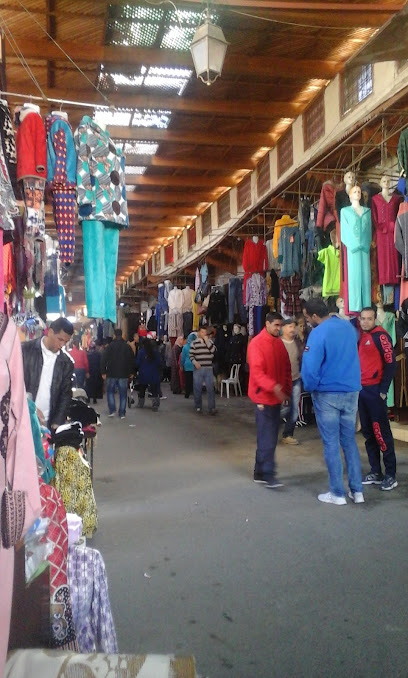
Boutique souvenirs avec prix
Discover unique handcrafted souvenirs that capture the spirit of Morocco in this charming Fes gift shop.

fez souvenir store
Explore the heart of Moroccan culture with unique handicrafts at Fez Souvenir Store - your gateway to authentic souvenirs.

Essential bars & hidden hideouts
Mezzanine
Discover the vibrant atmosphere and stunning views at Mezzanine Lounge, a rooftop oasis in the heart of Fes, perfect for dining and relaxation.
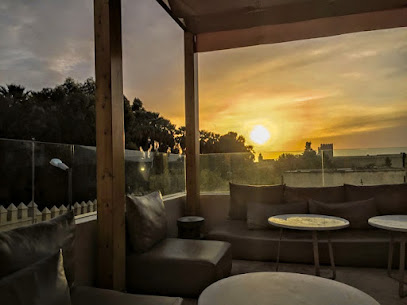
Café Calairis
Experience the vibrant flavors and culture of Fes at Café Calairis, your cozy retreat in Ville Nouvelle.
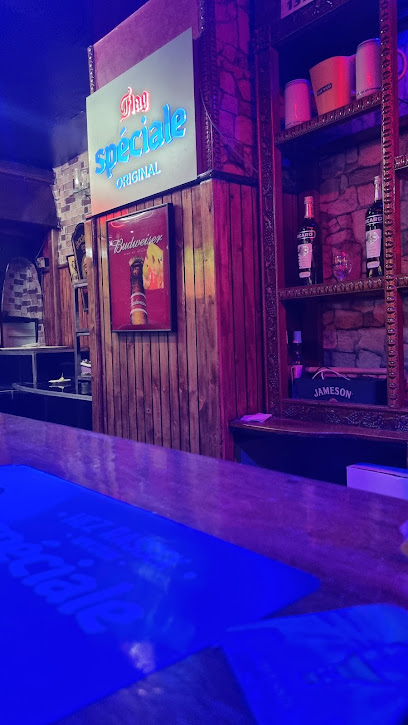
Zen garden
Experience tranquility in the heart of Fès at the breathtaking Zen Garden, a serene escape featuring lush landscapes and peaceful water features.
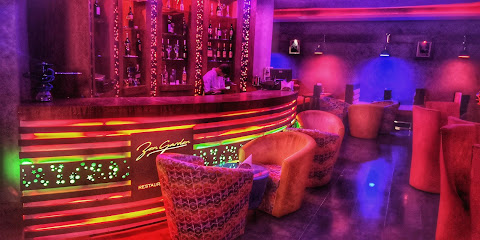
Bar Café Dalila
Discover the vibrant ambiance of Bar Café Dalila in Fes, a perfect spot for relaxation, local flavors, and cultural exchange.
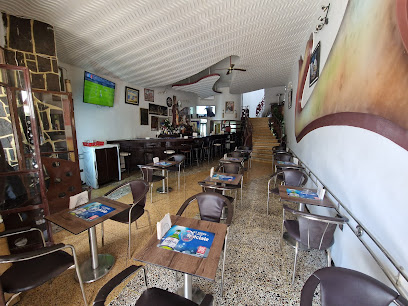
British Saloon
Discover the lively British Saloon in Fes, a vibrant sports bar offering an array of local and international drinks in a welcoming atmosphere.
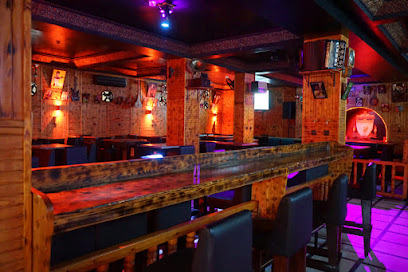
Eden chope bar
Discover the lively atmosphere of Eden Chope Bar, a perfect blend of Moroccan hospitality and vibrant nightlife in the heart of Fès.
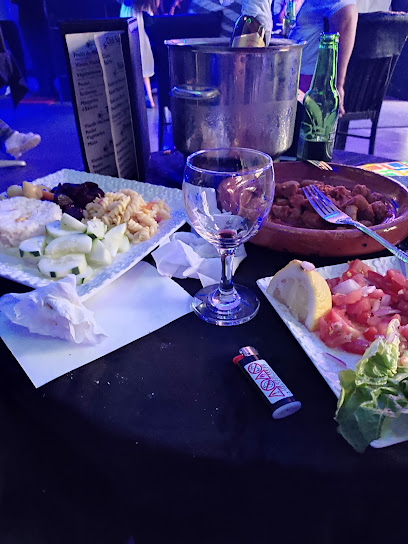
blue wall
Experience the vibrant ambiance of Blue Wall Bar in Fes, where refreshing drinks and lively culture create unforgettable moments.

Bar des juifs
Discover the charm of Fes at Bar des Juifs, where local culture meets affordable drinks in a welcoming atmosphere.

Churchill Lounge Restaurant Bar
Savor the rich flavors of Moroccan cuisine in a stylish setting at Churchill Lounge Restaurant Bar in Fes.
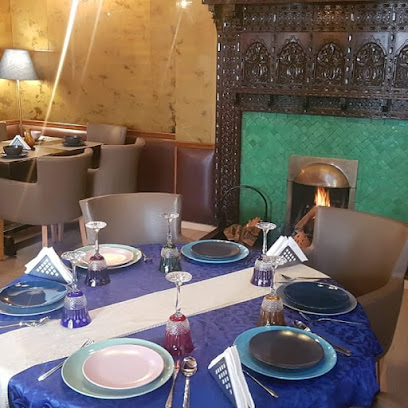
سلمى
Discover the vibrant nightlife at سلمى, a lively bar in Fes, offering a unique blend of local culture and delightful beverages.

Local Phrases
-
- Helloسلام
[salaam] - Goodbyeوداعا
[wadaa'an] - Yesنعم
[naam] - Noلا
[laa] - Please/You're welcomeمن فضلك
[min fadlik] - Thank youشكرا
[shukran] - Excuse me/Sorryعذرا
[aadhraan] - How are you?كيف حالك؟
[kayfa halak?] - Fine. And you?بخير. وأنت؟
[bikhayr. wa anta?] - Do you speak English?هل تتحدث الإنجليزية؟
[hal tatahadath al-inglizia?] - I don't understandلا أفهم
[laa afham]
- Helloسلام
-
- I'd like to see the menu, pleaseأريد أن أرى القائمة، من فضلك
[uridu an ara al-qaimah, min fadlik] - I don't eat meatأنا لا آكل اللحم
[ana la aakulu al-lahm] - Cheers!في صحتك
[fi sahtik] - I would like to pay, pleaseأود أن أدفع، من فضلك
[awadu an adfaa, min fadlik]
- I'd like to see the menu, pleaseأريد أن أرى القائمة، من فضلك
-
- Help!النجدة!
[al-najdah!] - Go away!إبتعد!
[ibtad!] - Call the Police!اتصل بالشرطة!
[iatisal bialshurta!] - Call a doctor!اتصل بالطبيب!
[iatisal bialtabib!] - I'm lostلقد ضللت الطريق
[laqad dalalt al-tariq] - I'm illأنا مريض
[ana mareed]
- Help!النجدة!
-
- I'd like to buy...أريد أن أشتري...
[uridu an ashtari...] - I'm just lookingأنا فقط أتفرج
[ana faqat atfarij] - How much is it?كم هو ثمنه؟
[kam huwa thamanuh?] - That's too expensiveهذا غالي جدا
[hatha ghali jiddan] - Can you lower the price?هل يمكنك خفض السعر؟
[hal yumkinuk khafd al-si'r?]
- I'd like to buy...أريد أن أشتري...
-
- What time is it?كم الوقت؟
[kam al-waqt?] - It's one o'clockالساعة الواحدة
[al-saa'at al-wahidah] - Half past (10)النصف بعد العاشرة
[al-nisf ba'd al-aashirah] - Morningالصباح
[al-sabah] - Afternoonالمساء
[al-masa'] - Eveningالليل
[al-layl] - Yesterdayالبارحة
[al-barahah] - Todayاليوم
[al-yawm] - Tomorrowغدا
[ghadan] - 1واحد
[wahid] - 2اثنان
[ithnan] - 3ثلاثة
[thalatha] - 4أربعة
[arba'a] - 5خمسة
[khamsa] - 6ستة
[sitta] - 7سبعة
[sab'a] - 8ثمانية
[thamaniya] - 9تسعة
[tis'ah] - 10عشرة
[asharah]
- What time is it?كم الوقت؟
-
- Where's a/the...?أين...
[ayn...] - What's the address?ما هو العنوان؟
[ma huwa al-eanwan?] - Can you show me (on the map)?هل يمكنك أن تريني (على الخريطة)؟
[hal yumkinuk an tareeni (ala al-kharitah)?] - When's the next (bus)?متى يأتي الحافلة التالية؟
[mata yaati al-hafilah al-taliyah?] - A ticket (to ....)تذكرة (إلى ...)
[tathkirah (ila ...)]
- Where's a/the...?أين...
History of Fes Jdid
-
Fes Jdid, meaning 'New Fes', was established in the 13th century under the rule of the Marinid dynasty. It was initially built to serve as a royal residence and to accommodate the growing population of Fes as the city expanded. The neighbourhood was strategically located outside the older medina, allowing for better defense and administration.
-
The architecture of Fes Jdid reflects the Marinid style, characterized by intricate tile work, carved stucco, and grand gateways. Notable structures include the Royal Palace (Dar el-Makhzen), which serves as a symbol of the political power of the Marinids and later dynasties. The neighbourhood's design was influenced by Islamic architectural principles, showcasing the artistry of Moroccan craftsmanship.
-
During the 13th to 15th centuries, Fes Jdid became a cultural hub, attracting scholars, artists, and merchants from across the Islamic world. The Marinid dynasty invested in education and the arts, leading to the establishment of various madrasas and libraries that enriched the intellectual landscape of Fes.
-
As the power of the Marinids waned in the 16th century, Fes Jdid experienced a decline. However, it saw a resurgence during the Alaouite dynasty, which recognized the neighbourhood's historical significance. Efforts were made to restore and preserve its architectural heritage, and it became a focal point for the royal family.
-
In contemporary times, Fes Jdid has become a blend of historical significance and modernity. While preserving its rich heritage, it has also embraced tourism, with initiatives aimed at promoting its cultural sites. The neighbourhood serves as a reminder of Fes's historical importance as a center of learning and culture in Morocco.
Fes Jdid Essentials
-
Fes Jdid is conveniently located within the city of Fes. You can reach Fes Jdid from the medina (Fes El Bali) by walking or taking a local taxi, which typically costs around 10-15 MAD. If you're coming from the Fes train station, taxis are readily available, and the ride to Fes Jdid takes about 15 minutes. Buses also connect various neighborhoods, including Fes Jdid, making it accessible from different parts of the city.
-
Fes Jdid is best explored on foot, as many of its attractions are within walking distance. Local taxis are available for longer distances, and they are relatively affordable. Public buses run throughout the city, but schedules can be irregular. For those who prefer cycling, renting a bicycle is an option, although traffic can be congested.
-
Fes Jdid is generally safe for tourists, but standard precautions should be observed. Avoid walking alone at night in poorly lit areas. While the neighborhood does not have specific high-crime areas targeting tourists, petty theft can occur in crowded places. It is advisable to keep your belongings secure and be aware of your surroundings.
-
In case of an emergency, dial 19 for police assistance or 15 for medical emergencies in Morocco. The local hospital is located in Fes Jdid, and various pharmacies can provide over-the-counter medications. It is recommended to have travel insurance that covers medical emergencies to ensure you are adequately protected.
-
Fashion: Do dress modestly, especially in religious sites; avoid revealing clothing. Religion: Do respect local customs; cover your head when entering mosques. Public Transport: Do give up your seat to elderly passengers; don't eat or drink on public transport. Greetings: Do greet people with a handshake; a slight bow of the head shows respect. Eating & Drinking: Do try local food and accept hospitality graciously; don't refuse food offerings, as it may offend your hosts.
-
To experience Fes Jdid like a local, visit the local markets, particularly the Marché de Fes, where you can find fresh produce and traditional crafts. Engage with local artisans and shopkeepers, who often have fascinating stories to share. Don't miss the historic sites, such as the Royal Palace and the Mellah (Jewish Quarter), which offer insights into the rich history of the area. Also, consider trying local street food for an authentic culinary experience.
Nearby Cities to Fes Jdid
-
Things To Do in Meknes
-
Things To Do in Chefchaouen
-
Things To Do in Tetouan
-
Things To Do in Asilah
-
Things To Do in Tangier
-
Things To Do in Europa Point
-
Things To Do in Gorham's Cave Complex
-
Things To Do in St. Michael's Cave
-
Things To Do in Alameda Botanic Gardens
-
Things To Do in Queensway Quay Marina
-
Things To Do in Catalan Bay
-
Things To Do in Main Street
-
Things To Do in Gibraltar
-
Things To Do in Moorish Castle
-
Things To Do in Casemates Square








